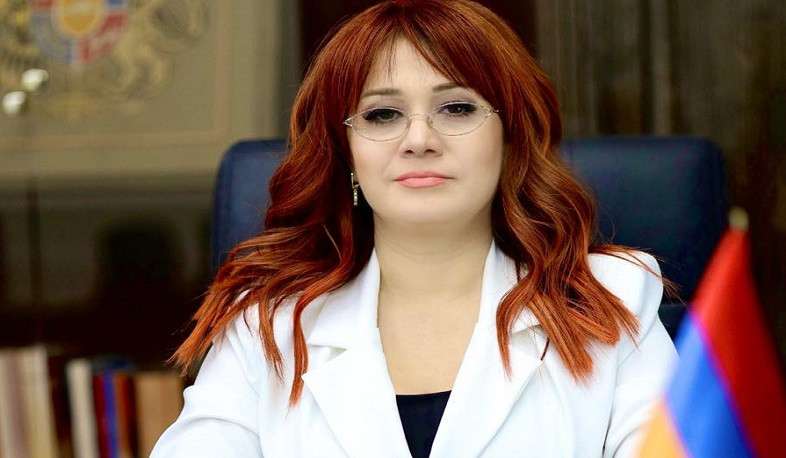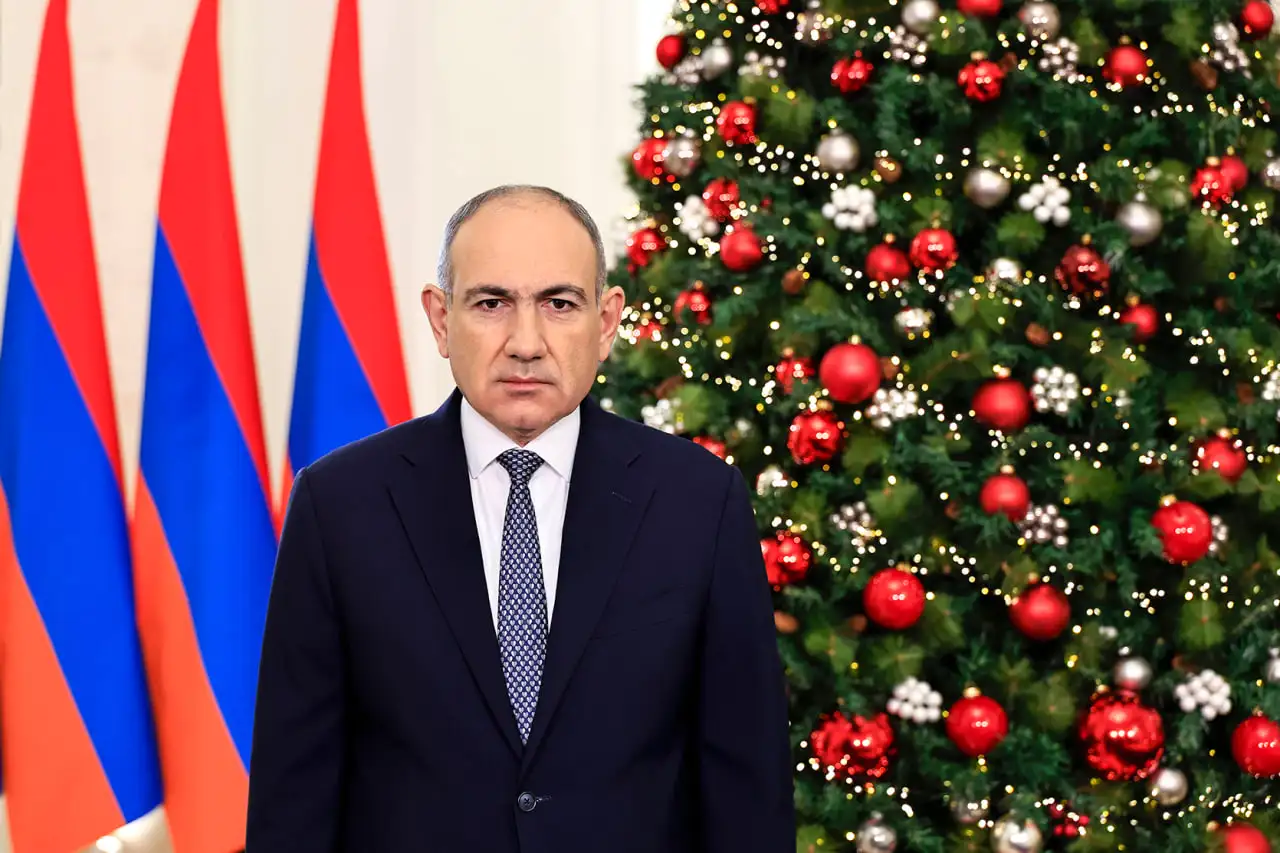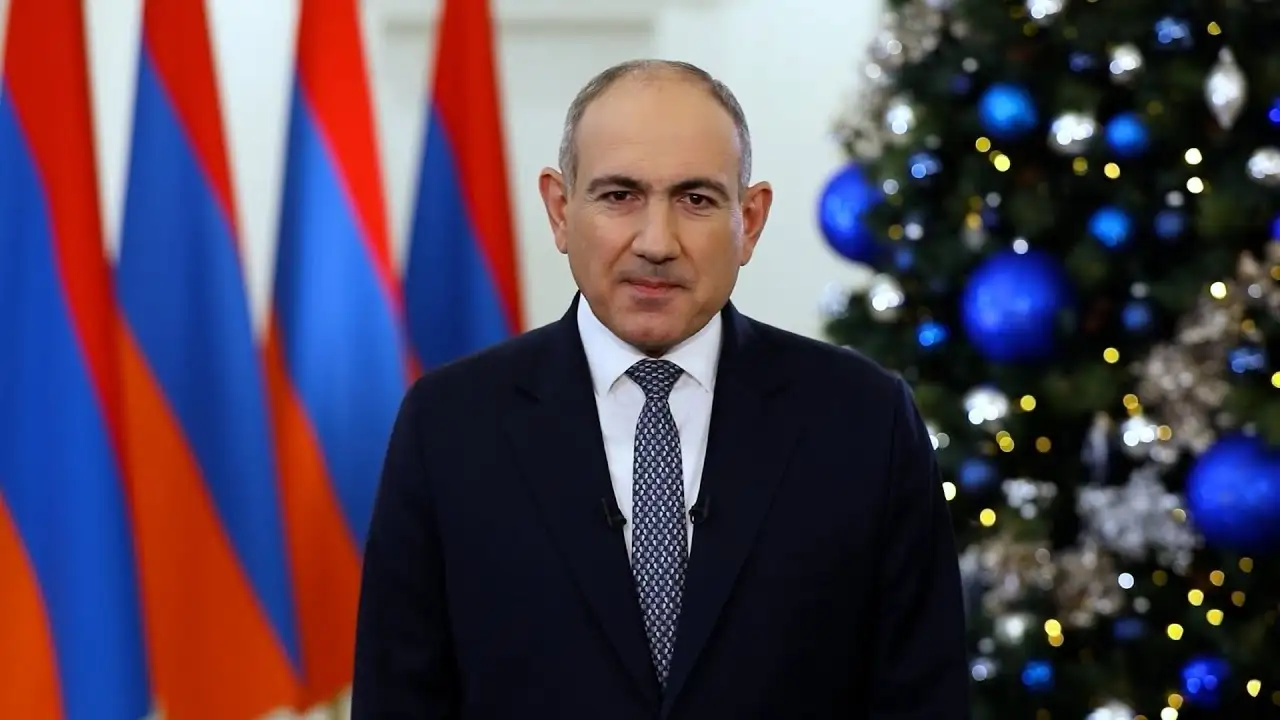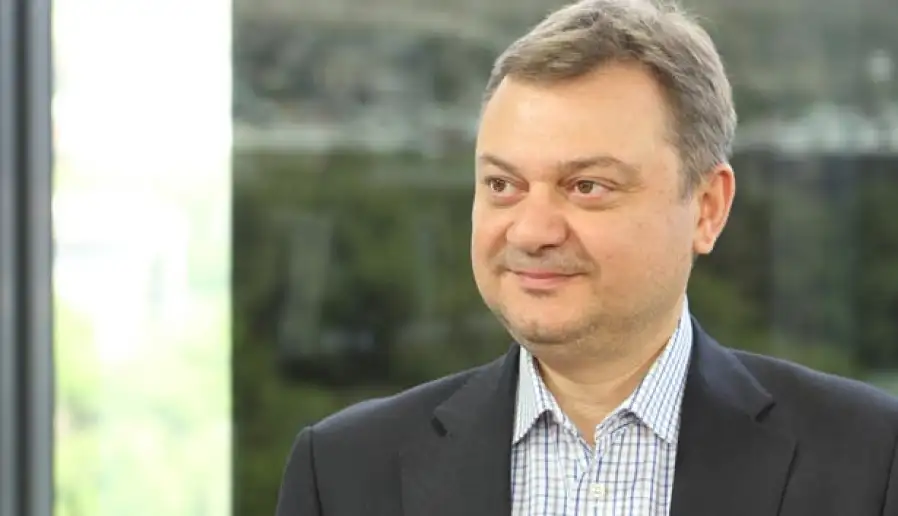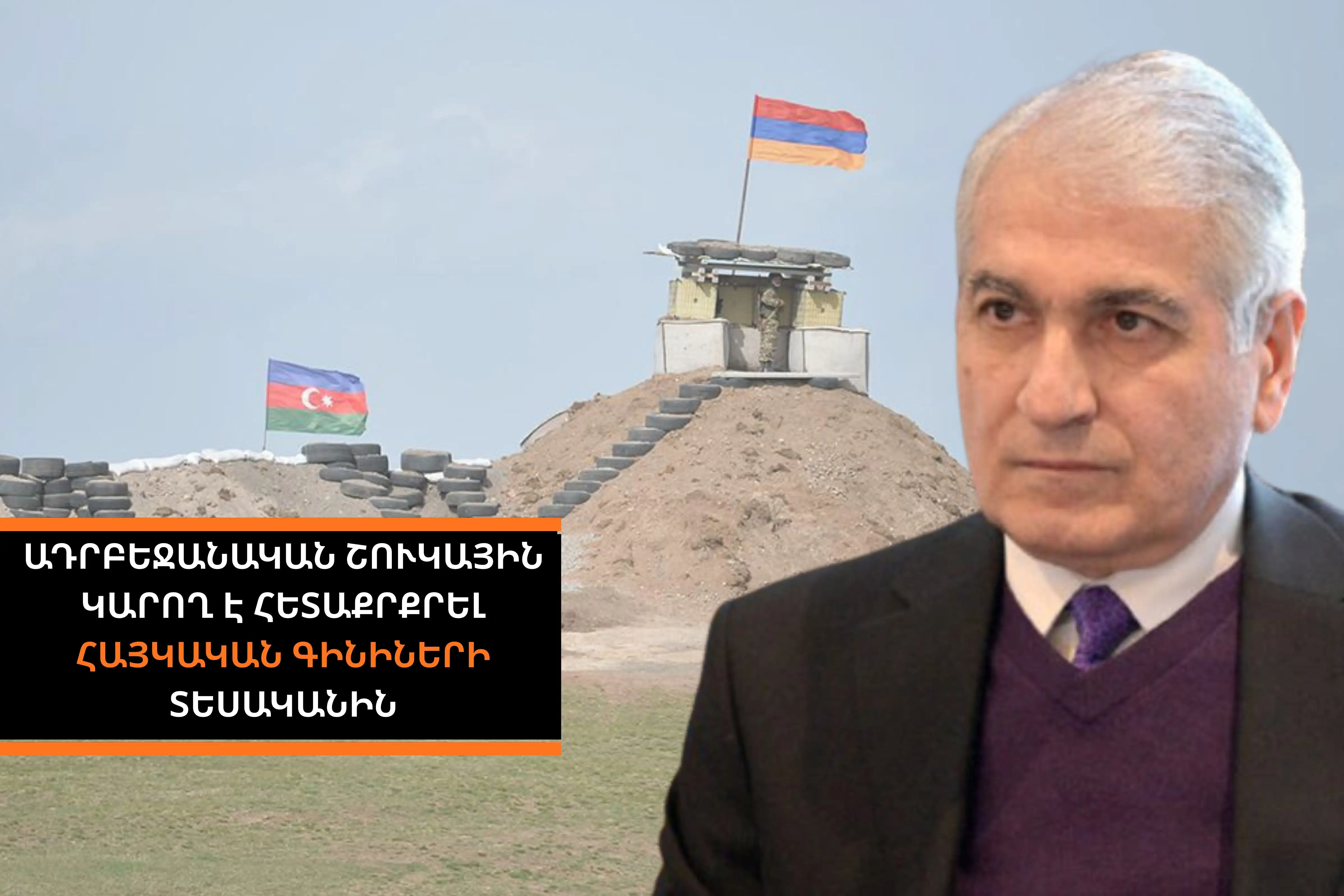The Prime Minister's Spokesperson, Nazeli Baghdasaryan, commented on the recent statements of the Azerbaijani President at the request of "Armenpress".
-Ms. Baghdasaryan, during the international media forum, Azerbaijani President Ilham Aliyev, developing the topic of the "Zangezur Corridor", stated that "Azerbaijani cargo and Azerbaijani citizens should not encounter the Armenian border service or anyone else", and the Azerbaijani side considers this communication route as an unhindered and secure connection between the territories of Azerbaijan. According to her, this issue was also raised during the meeting with the Armenian Prime Minister in Abu Dhabi. She also added that there will be no "operator, lease, or rental of territory" on their territory. How would you comment on his statement? What is Armenia's position on this issue?
-The Republic of Armenia has never discussed, does not discuss, and will not discuss with anyone the nomenclature mentioned by the Azerbaijani President and the logic arising from it. The Republic of Armenia is debating the "Crossroads of Peace" project with both Azerbaijan and other international partners. The Republic of Armenia also expects the unblocking of transport communication between the Syunik region of the Republic of Armenia and the rest of the Republic of Armenia, as well as between the Republic of Armenia and third countries, through the territory of the Republic of Azerbaijan. In turn, the Republic of Armenia is ready to ensure transport communication between the western regions of Azerbaijan and the Nakhchivan Autonomous Republic, as well as between Azerbaijan and third countries. All this should take place with full respect for the territorial integrity, sovereignty, and jurisdiction of the two countries, as well as the principle of reciprocity. The Republic of Armenia has neither discussed nor will it discuss any other option in Abu Dhabi on July 10, 2019, nor before or after that date. The statement of the President of Azerbaijan that Azerbaijani citizens should not encounter the Armenian border guard service is beyond the logic of the discussions that took place. This is, in essence, a hidden territorial claim against the Republic of Armenia, which is unacceptable and contradicts the spirit and letter of the negotiations and agreements that have been reached so far. As Prime Minister Pashinyan noted at his press conference on July 16, 2019, cargo and citizens entering Armenia's territory, including transit cargo, must undergo mandatory customs and border control by internationally accepted standards. The Republic of Armenia cannot fail to have information about who entered its territory and whether they left after entering or not.
The compliance of citizens and the documents they present cannot be verified. In the event of inconsistency, their entry into the territory of the Republic of Armenia will not be allowed. The Republic of Armenia cannot fail to have information about whether cargo or goods entering its territory for transit purposes left the territory of the Republic of Armenia; otherwise, an uncontrolled source of smuggling and the circulation of prohibited goods may be opened. The Republic of Armenia cannot fail to possess information about what cargo is passing through its territory, because, for example, if a wagon or truck loaded with chemical substances breaks down, our country will bear the consequences. The relevant services of the Republic of Armenia will address the elimination of these consequences. There is no option not to meet the appropriate services of our country when crossing the territory of the Republic of Armenia. Both Armenia and Azerbaijan have several international obligations, for example, to prevent and counter various manifestations of international crime on their territory. These obligations are implemented by states, among others, through their customs and border services. Therefore, Azerbaijan's statement is also incomprehensible to Armenia in this regard.
Additionally, Prime Minister Pashinyan announced this at his press conference on July 16: these meetings at the border and customs points of the Republic of Armenia can now take place using modern technologies, sometimes without physical contact, with biometric passports, online declaration, and scanning of cargo. This format is widely accepted in many countries worldwide. In any case, wagons passing through the territory of the Republic of Armenia must also be sealed to prevent the release of contraband. There are also internationally accepted transit fees. In the case of railways, the regulations differ; for pipelines, the rules vary; for trucks on highways, the regulations are distinct; and for passenger cars, the regulations are also different. Sometimes, countries agree on tariffs based on the principle of reciprocity. In all cases, the corresponding agreed fees must be paid, and the state budget of the Republic of Armenia must receive revenues from the resumption of transport communications.
As for security, the Republic of Armenia itself ensures the protection of roads, cargo, vehicles, and passengers passing through its territory. With the "Crossroads of Peace" project, additional security measures have been envisioned for the planned routes, including the establishment of a special unit within the National Security Service of the Republic of Armenia for this purpose. The Republic of Armenia is prepared to ensure transit security for cargo, vehicles, pipelines, cables, and, of course, passengers. Regarding the investments required to unblock transport routes in both countries, each country determines the investment schemes that are most convenient for it. Prime Minister Pashinyan clearly stated at the July 16 press conference that no investment scheme in the territory of the Republic of Armenia can be outside the territorial integrity, sovereignty, and jurisdiction of the Republic of Armenia.
- Speaking about the construction of the railway on the Azerbaijani side, up to the border of Armenia and Iran, Ilham Aliyev noted that they are almost completing the construction of the railway, and, probably, in less than a year, maybe even in the spring of next year, the Azerbaijani section of the railway will be built. He noted that no work has been carried out on the Armenian side in the last five years, and this issue is allegedly being deliberately removed from the agenda. According to Aliyev, in this case, "Armenia's chances of ever becoming a transit country are almost zero, and if Armenia continues to hinder the process, it will find itself in not only transport but also political isolation." What are your thoughts on such claims made by the Azerbaijani side?
-The proposals mentioned above to unblock the region's transport routes have been made to Azerbaijan by the government of the Republic of Armenia continuously. Moreover, last year, a new proposal was made to Azerbaijan, according to which Armenian locomotives with Armenian drivers and the implementation of the principles mentioned above could ensure railway freight transportation between the Western regions of Azerbaijan and the Nakhichevan Autonomous Republic, as well as the Syunik region and other parts of the Republic of Armenia. Prime Minister Pashinyan spoke publicly about this proposal during the "Yerevan Dialogue" conference. However, Azerbaijan is either silent or rejects these proposals. I am authorized to reaffirm the Republic of Armenia's readiness to implement all the solutions outlined above. As for the construction of the railway, the railway being built in Azerbaijan also has domestic significance (it connects Baku and the Western regions of Azerbaijan). The Republic of Armenia will have an incentive to construct a 42-km-long railway in the Syunik region only if an agreement is reached with Azerbaijan, as this railway cannot be used for domestic cargo transportation in Armenia without such an agreement. Therefore, the accusation that Armenia's request to remove the unblocking of regional communication from the agenda is unfounded. The construction of the railway above will begin immediately after agreements are reached with Azerbaijan, and preparatory work is already underway. For example, the construction of a new road for the village of Nrnadzor is already underway, which will replace the current automobile communication along the former railway line. The Republic of Armenia is interested in the unblocking of all transport routes with its neighbors, as evidenced by the "Crossroads of Peace" project, which is presented by official representatives of Armenia almost everywhere.
-The President of Azerbaijan also spoke about the peace agreement, noting that Yerevan and Baku are more than close to signing it. At the same time, in the context of initialing the contract, he continued to present the amendment of the Constitution of Armenia and the dissolution of the Minsk Group as a precondition. Is the initialing of the agreement an acceptable option for the Armenian side at this stage?
-The Prime Minister of the Republic of Armenia also stated that Armenia and Azerbaijan are very close to signing the Peace Agreement. Regarding the dissolution of the Minsk Group mechanisms and the possible initialing of the Peace Agreement, this is a reasonable agenda for the Republic of Armenia, and active discussions are now underway on the conditions under which this can occur. As for the issue related to the Constitution, the Prime Minister of the Republic of Armenia has repeatedly stated that if, after the signing of the Peace Agreement, the Constitutional Court of the Republic of Armenia recognizes it as contradicting the Constitution, the Prime Minister himself will initiate constitutional amendments in the Republic of Armenia. Until then, there is no reason for this, because the Constitutional Court of the Republic of Armenia, by its decision of September 2024, determined that our Constitution does not contain any territorial claims against any country. Prime Minister Pashinyan addressed these topics in detail during the discussion of the Report on the Implementation of the 2021-2026 Program of the Government of the Republic of Armenia in 2024, as well as in his extensive speeches during the "Yerevan Dialogue" conference.
It is also known that Prime Minister Pashinyan initiated discussions on the need to adopt a new Constitution for the Republic of Armenia between 2018 and 2020, and this issue is now being actively pursued and is being discussed institutionally. But it is a matter of the internal agenda of the Republic of Armenia and has nothing to do with the negotiations with Azerbaijan.
-And is the issue of the release of prisoners and the issue of unknown whereabouts being discussed in the context of the signing or initialing of the Peace Agreement?
-Prime Minister Pashinyan has stated that these issues are addressed in all discussions, and the current negotiations are no exception.




